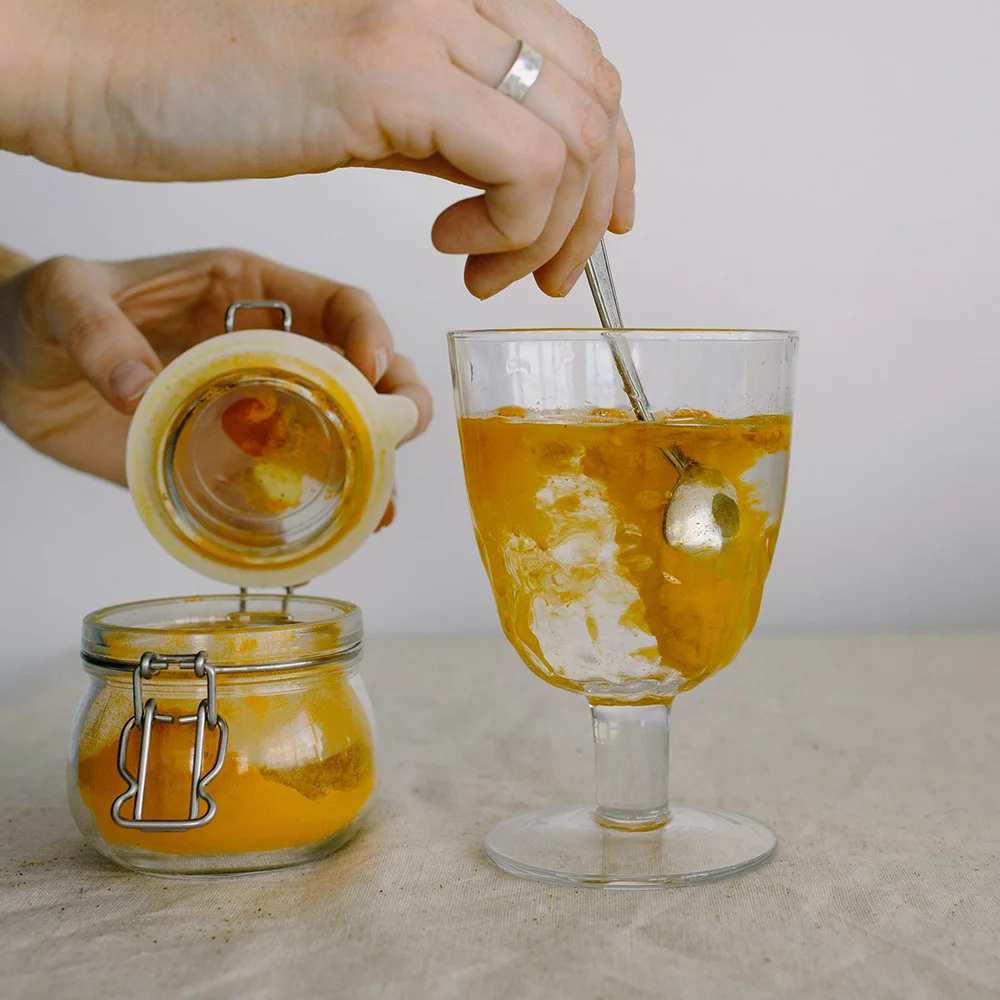8 Ashwagandha benefits proven by research

Reviewed by Mike Bohl, MD, MPH, ALM,
Written by Linnea Zielinski
last updated: May 04, 2021
5 min read
Here's what we'll cover
Herbs and roots have been used for centuries for their medicinal properties. Modern scientific research shows some of these to be more beneficial than others. What about ashwagandha?
Ashwagandha has many potential benefits, though none of them are well-researched in humans. Let’s take a look.
What is ashwagandha?
Ashwagandha (Withania somnifera) is sometimes also called Indian ginseng or winter cherry. This plant is an adaptogen, a family of medicinal plants popular in alternative medicine that help the body adapt to or deal with all kinds of stressors, both physical to mental. Ashwagandha has long been an essential herb of Ayurvedic, Indian, and African traditional medicine, which uses both the plant’s roots and berries for treatments.
Ashwagandha benefits
Ashwagandha root is considered a drug of “Rasayana,” meaning that it promotes youth and longevity. Ashwagandha gets its potent medicinal power from withanolides, naturally occurring steroidal lactones found in the root. For these withanolides to work, they need to be absorbed through the intestinal wall. Limited data about the benefits of ashwagandha exist in the medical literature—more research is required to confirm the claims. Seek medical advice from your healthcare provider before starting any herbal supplements, including ashwagandha.
1. May lower blood sugar
Several animal studies suggest that ashwagandha may help lower your blood sugar; there are few human trials on ashwagandha. One small trial found that ashwagandha reduced blood sugar as much as oral diabetes medication in people with type 2 diabetes (Andallu, 2000). Another study showed people taking high-dose ashwagandha had a drop in fasting blood glucose. One theory behind the reduction in blood sugar is that ashwagandha may affect cortisol, which plays a role in regulating blood sugar (Auddy, 2008).
2. Can reduce stress and anxiety
Stress can be emotional, psychological, or physical—regardless of the form, it usually involves cortisol. Among other functions, cortisol is also known as the “stress hormone” because your adrenal glands release it in response to stress.
One study found that a high dose of ashwagandha root extract significantly reduced serum cortisol levels. The study participants also reported that their perceived stress levels diminished, giving them a better quality of life (Chandrasekhar, 2012).
Even without measuring cortisol levels, other studies suggest that ashwagandha may improve stress and anxiety. In one trial, researchers gave high-dose ashwagandha to people with anxiety. Along with other interventions, ashwagandha significantly improved mental health, concentration, energy levels, social functioning, vitality, and overall quality of life (Cooley, 2009).
3. May improve arthritis
Preliminary clinical trials suggest that ashwagandha may help fight inflammation, making it a potential treatment for rheumatoid arthritis (RA). The plant's use as an anti-inflammatory goes back a long time. Ayurvedic medicine practitioners would mash the root into a paste and apply it to ulcers as a pain reliever and to joints to ease inflammation (Singh, 2011).
A small study suggested that, combined with another Ayurvedic treatment for arthritis called Sidh Makardhwaj, ashwagandha powder eased swollen and painful joints in people with RA (Kumar, 2015). Another study found that ashwagandha decreased C-reactive protein levels (CRP), a nonspecific marker of inflammation, by over 30% (Auddy, 2008). More research needs to be done to confirm these anti-inflammatory properties.
4. Shows promise for testosterone and male fertility
According to one study, men taking ashwagandha powder may boost their testosterone levels, along with sperm count and motility (Ahmad, 2010). Another small study is especially promising for men struggling with infertility. Ashwagandha improved both stress and sperm quality. By the end of the study, the partners of 14% of the men had become pregnant (Mahdi, 2011).
5. May increase muscle mass and strength
Since ancient times, ashwagandha has been used to increase strength and energy. The word ashwagandha is Sanskrit for “smell of the horse.” It references the herb’s unique smell, as well as its ability to increase strength. Fortunately, you can side-step the smell issue by opting for capsules over loose powder.
Small studies suggest that supplementing with ashwagandha may prove beneficial to those on a weight lifting regimen. At the end of the eight-week study, participants taking ashwagandha had increased their muscle strength in bench press and leg extension routines compared to their placebo-taking counterparts. They also lost more body fat while taking ashwagandha (Wankhede, 2015).
6. Can help prevent the loss of brain function
The “youth giving” properties of ashwagandha don't just apply to your body. Preliminary studies on animals and laboratories suggest it may also boost your mental abilities and brain function.
Though using ashwagandha for brain health is a long Ayurvedic practice, research in humans is lagging. However, one study showed that reaction time and cognitive function improved significantly in men on ashwagandha versus placebo (Pingali, 2014). Memory and information processing were also increased in participants of another study that looked specifically at the effects of ashwagandha in people with mild cognitive impairment (Choudhary, 2017).
Studies in animals show promise for ashwagandha to treat diseases like Parkinson’s and Alzheimer’s, but more research is needed in humans. Animal research suggests that chemicals from this herb can potentially help brain cell regeneration (Kuboyama, 2005). It may also protect the brain against beta-amyloid, a plaque that causes cell damage and death; beta-amyloid plays a role in developing Alzheimer’s disease (Jayaprakasam, 2010). We cannot definitively say whether this holds true in humans until more research is done.
7. May improve heart health
One area where we do have solid human research is in the area of heart health. Withania somnifera appears to lower both total and LDL (bad) cholesterol (Raut, 2012). Another small study found similar results, noting decreases in triglyceride and cholesterol levels after 30 days of ashwagandha use (Andallu, 2000). Ashwagandha may also lower blood pressure (Raut, 2012). High blood pressure and elevated cholesterol increase your risk of heart disease—lowering them improves your overall heart health.
8. May stop cancer cell growth
There’s currently no human research that suggests ashwagandha has anti-cancer properties, but animal and laboratory studies are promising. Programmed death of cells is called apoptosis, and this process is a target for many cancer treatments. One study found that withaferin, a compound in ashwagandha, disrupts cancer cell growth and makes them more susceptible to apoptosis (Nishikawa, 2015).
Animal studies have found cancer benefits for multiple types of tumors, making ashwagandha a potential treatment for lung, breast, ovarian, brain, prostate, and colon cancers (Senthilnathan, 2006; Khazal, 2014; Kakar, 2014; Chang, 2016; Nishikawa, 2015; Muralikrishnan, 2010). We need to confirm these findings with human studies, but it's a hopeful first step.
What to know before you take ashwagandha
Fortunately, ashwagandha seems to have a relatively low incidence of side effects. Regardless, it’s a good idea to talk to your healthcare professional before taking ashwagandha, or any other supplement, especially if you have medical issues. Ashwagandha is not for everyone.
People with autoimmune diseases—such as Hashimoto’s thyroiditis, rheumatoid arthritis, or lupus—should consult with a medical professional before starting a supplement regimen.
Past research suggests that Ashwagandha may affect thyroid hormones (Verma, 2021). Let your healthcare provider know if you have thyroid problems and are thinking of taking this herb.
Ashwagandha is part of the nightshade family, which includes tomatoes, peppers, and eggplant. If you follow a diet that eliminates this group of plants, you probably shouldn’t take this supplement. Lastly, people who are pregnant or breastfeeding should avoid ashwagandha.
Ashwagandha supplements are readily accessible in health stores, supplement shops, and online. Be sure to choose a product from a company you trust, as the FDA does not strictly regulate ashwagandha.
DISCLAIMER
If you have any medical questions or concerns, please talk to your healthcare provider. The articles on Health Guide are underpinned by peer-reviewed research and information drawn from medical societies and governmental agencies. However, they are not a substitute for professional medical advice, diagnosis, or treatment.
Ahmad, M. K., Mahdi, A. A., Shukla, K. K., Islam, N., Rajender, S., Madhukar, D., et al. (2010). Withania somnifera improves semen quality by regulating reproductive hormone levels and oxidative stress in seminal plasma of infertile males. Fertility and Sterility, 94 (3), 989–996. doi: 10.1016/j.fertnstert.2009.04.046. Retrieved from https://pubmed.ncbi.nlm.nih.gov/19501822/
Andallu, B., & Radhika, B. (2000). Hypoglycemic, diuretic and hypocholesterolemic effect of winter cherry (Withania somnifera, Dunal) root. Indian Journal of Experimental Biology, 38 (6), 607–609. Retrieved from https://www.ncbi.nlm.nih.gov/pubmed/11116534
Auddy, B., Hazra, J., Mitra, A., Abedon, B., & Ghosal, S. (2008). A standardized Withania Somnifera extract significantly reduces stress-related parameters in chronically stressed humans: a double-blind, randomized, placebo-controlled study. JANA, 11 (1), 50–56. Retrieved from https://www.researchgate.net/publication/242151370_A_Standardized_Withania_Somnifera_Extract_Significantly_Reduces_Stress-Related_Parameters_in_Chronically_Stressed_Humans_A_Double-Blind_Randomized_Placebo-Controlled_Study
Chandrasekhar, K., Kapoor, J., & Anishetty, S. (2012). A prospective, randomized double-blind, placebo-controlled study of safety and efficacy of a high-concentration full-spectrum extract of Ashwagandha root in reducing stress and anxiety in adults. Indian Journal of Psychological Medicine, 34 (3), 255–262. doi: 10.4103/0253-7176.106022. Retrieved from https://pubmed.ncbi.nlm.nih.gov/23439798/
Chang, E., Pohling, C., Natarajan, A., Witney, T. H., Kaur, J., Xu, L., et al. (2016). AshwaMAX and Withaferin A inhibits gliomas in cellular and murine orthotopic models. Journal of Neuro-Oncology, 126 (2), 253–264. doi: 10.1007/s11060-015-1972-1. Retrieved from https://pubmed.ncbi.nlm.nih.gov/26650066/
Choudhary, D., Bhattacharyya, S., & Bose, S. (2017). Efficacy and safety of ashwagandha (Withania somnifera (L.) Dunal) root extract in improving memory and cognitive functions. Journal of Dietary Supplements, 14 (6), 599–612. doi: 10.1080/19390211.2017.1284970. Retrieved from https://pubmed.ncbi.nlm.nih.gov/28471731/
Cooley, K., Szczurko, O., Perri, D., Mills, E. J., Bernhardt, B., Zhou, Q., & Seely, D. (2009). Naturopathic care for anxiety: a randomized controlled trial ISRCTN78958974. PLoS ONE, 4 (8), e6628. doi: 10.1371/journal.pone.0006628. Retrieved from https://pubmed.ncbi.nlm.nih.gov/19718255/
Jayaprakasam, B., Padmanabhan, K., & Nair, M. G. (2010). Withanamides in Withania somnifera fruit protect PC-12 cells from beta-amyloid responsible for Alzheimer's disease. Phytotherapy Research, 24 (6), 859–863. doi: 10.1002/ptr.3033. Retrieved from https://pubmed.ncbi.nlm.nih.gov/19957250/
Kakar, S. S., Ratajczak, M. Z., Powell, K. S., Moghadamfalahi, M., Miller, D. M., Batra, S. K., & Singh, S. K. (2014). Withaferin A alone and in combination with cisplatin suppresses growth and metastasis of ovarian cancer by targeting putative cancer stem cells. PLoS One, 9 (9), e107596. doi: 10.1371/journal.pone.0107596. Retrieved from https://pubmed.ncbi.nlm.nih.gov/25264898/
Khazal, K. F., Hill, D., & Grubbs, C. J. (2014). Effect of Withania somnifera root extract on spontaneous estrogen receptor-negative mammary cancer in MMTV/Neu mice. Anticancer Research, 34 (11), 6327–6332. Retrieved from https://pubmed.ncbi.nlm.nih.gov/25368231/
Kuboyama, T., Tohda, C., & Komatsu, K. (2005). Neuritic regeneration and synaptic reconstruction induced by withanolide A. British Journal of Pharmacology, 144 (7), 961–971. doi: 10.1038/sj.bjp.0706122. Retrieved from https://pubmed.ncbi.nlm.nih.gov/15711595/
Kumar, G., Srivastava, A., Sharma, S. K., Rao, T. D., & Gupta, Y. K. (2015). Efficacy & safety evaluation of Ayurvedic treatment (Ashwagandha powder & Sidh Makardhwaj) in rheumatoid arthritis patients: a pilot prospective study. The Indian Journal of Medical Research, 141 (1), 100–106. doi: 10.4103/0971-5916.154510. Retrieved from https://pubmed.ncbi.nlm.nih.gov/25857501/
Mahdi, A. A., Shukla, K. K., Ahmad, M. K., Rajender, S., Shankhwar, S. N., Singh, V., & Dalela, D. (2011). Withania somniferaImproves semen quality in stress-related male fertility. Evidence-Based Complementary and Alternative Medicine, 2011 , 576962. doi: 10.1093/ecam/nep138. Retrieved from https://pubmed.ncbi.nlm.nih.gov/19789214/
Muralikrishnan, G., Dinda, A. K., & Shakeel, F. (2010). Immunomodulatory effects of Withania Somniferaon azoxymethane induced experimental colon cancer in mice. Immunological Investigations, 39 (7), 688–698. doi: 10.3109/08820139.2010.487083. Retrieved from https://pubmed.ncbi.nlm.nih.gov/20840055/
Nishikawa, Y., Okuzaki, D., Fukushima, K., Mukai, S., Ohno, S., Ozaki, Y., et al. (2015). Withaferin A induces cell death selectively in androgen-independent prostate cancer cells but not in normal fibroblast cells. PLoS One, 10 (7), e0134137. doi: 10.1371/journal.pone.0134137. Retrieved from https://pubmed.ncbi.nlm.nih.gov/26230090/
Pingali, U., Pilli, R., & Fatima, N. (2014). Effect of standardized aqueous extract of Withania somniferaon tests of cognitive and psychomotor performance in healthy human participants. Pharmacognosy Research, 6 (1), 12–18. doi: 10.4103/0974-8490.122912. Retrieved from https://pubmed.ncbi.nlm.nih.gov/24497737/
Raut, A. A., Rege, N. N., Tadvi, F. M., Solanki, P. V., Kene, K. R., Shirolkar, S. G., et al. (2012). Exploratory study to evaluate tolerability, safety, and activity of Ashwagandha (Withania somnifera) in healthy volunteers. Journal of Ayurveda and Integrative Medicine, 3 (3), 111–114. doi: 10.4103/0975-9476.100168. Retrieved from https://pubmed.ncbi.nlm.nih.gov/23125505/
Senthilnathan, P., Padmavathi, R., Magesh, V., & Sakthisekaran, D. (2006). Stabilization of membrane bound enzyme profiles and lipid peroxidation by Withania Somnifera along with Paclitaxel on benzo(a)pyrene induced experimental lung cancer. Molecular and Cellular Biochemistry, 292 (1-2), 13–17. doi: 10.1007/s11010-006-9121-y. Retrieved from https://pubmed.ncbi.nlm.nih.gov/17003952/
Singh, N., Bhalla, M., Jager, P. D., & Gilca, M. (2011). An overview on ashwagandha: a rasayana (rejuvenator) of Ayurveda. African Journal of Traditional, Complementary and Alternative Medicines, 8 (5 Suppl), 208–213. doi: 10.4314/ajtcam.v8i5s.9. Retrieved from https://www.ncbi.nlm.nih.gov/pmc/articles/PMC3252722/
Verma, N., Gupta, S. K., Tiwari, S., & Mishra, A. K. (2021). Safety of ashwagandha root extract: a randomized, placebo-controlled, study in healthy volunteers. Complementary Therapies in Medicine, 57 , 102642. doi: 10.1016/j.ctim.2020.102642. Retrieved from https://pubmed.ncbi.nlm.nih.gov/33338583
Wankhede, S., Langade, D., Joshi, K., Sinha, S. R., & Bhattacharyya, S. (2015). Examining the effect of Withania somnifera supplementation on muscle strength and recovery: a randomized controlled trial. Journal of the International Society of Sports Nutrition, 12 , 43. doi: 10.1186/s12970-015-0104-9. Retrieved from https://pubmed.ncbi.nlm.nih.gov/26609282/










